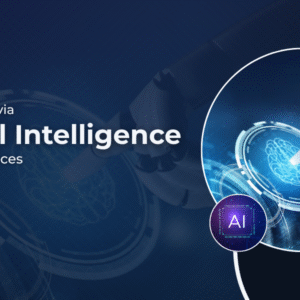In the fast-changing IT world of today, professionals need to keep up with their counterparts by integrating conventional infrastructure management with cutting-edge cloud computing training. One such useful skill is SCCM (System Center Configuration Manager), a Microsoft tool employed in administering computers, servers, and devices in large-scale IT infrastructure.
While cloud computing training is all about creating and managing virtual infrastructures within environments such as AWS, Microsoft Azure, and Google Cloud, SCCM instructs you on how to manage and secure on-premises systems. Together, these two sets of skills form a formidable hybrid skill that employers are looking for more and more in 2025 and beyond.
In this article, we dive into how SCCM learning goes hand-in-hand with your cloud capabilities, increases your platform knowledge of platforms such as Microsoft Azure, and prepares you for top certifications such as microsoft azure fundamentals and google cloud computing course tracks.
What Is SCCM and Why Does It Matter?
System Center Configuration Manager (SCCM) is a Microsoft endpoint management tool to deploy updates, manage device settings, and monitor system health in traditional on-premises environments. IT administrators employ SCCM to:
Automate software installs
Manage patching and compliance
Track system performance
Manage Windows endpoints and servers
With more organizations moving towards hybrid environments—merging both cloud and on-premise infrastructure—SCCM is still very relevant. It is usually combined with Azure services to deliver seamless management.
The SCCM Place in a Hybrid Cloud Environment
As much as cloud adoption is growing, the majority of large organizations exist in hybrid environments. That leaves IT professionals with the need to handle resources on both cloud infrastructures and on-premises systems. SCCM fills that gap by supporting integration with tools such as Microsoft Endpoint Manager and Azure Active Directory, allowing centralized management of physical and virtual assets.
If you’re taking azure fundamentals training, you find out how Microsoft maintains hybrid environments. Combining the training with SCCM knowledge enhances your vision of how cloud and onsite systems integrate in reality.
How SCCM Supports Cloud Certification Courses
This is how studying SCCM improves your cloud computing training:
1. Improved Understanding of Hybrid Deployments
In microsoft azure fundamentals and other azure training, hybrid deployments are often talked about. SCCM provides you with hands-on practice in setting up and managing systems that are within both on-premises and Azure infrastructure.
You’ll learn hands-on skills in:
Extending SCCM to Azure with Cloud Management Gateway
Managing devices joined to Azure AD
Configuring co-management for endpoint devices
This makes SCCM an ideal addition to your azure fundamentals training.
2. Streamlining Enterprise-Scale Management
Automation and scalability are one of the key areas of focus in cloud computing training. SCCM is designed to manage thousands of endpoints, and studying it teaches you to scale software deployment, automate compliance, and maintain security—abilities that directly translate to cloud infrastructure management.
Enhancing your knowledge of enterprise software through real-world experience helps you work with automation tools for the cloud:
Azure Automation
Google Cloud Deployment Manager
AWS Systems Manager
3. Augmenting Your Multi-Cloud Skillset
Professionals who pursue a google cloud computing course or google cloud courses often focus on infrastructure-as-code and cloud-native management. Understanding SCCM adds depth to this knowledge by providing:
A foundation in endpoint security and patching
Knowledge of legacy systems still in use by many organizations
Experience in transition planning from on-premise to the cloud
Having both SCCM and cloud expertise increases your employability in companies running multi-cloud or hybrid architectures.
4. Enhancing Security and Compliance Expertise
SCCM is considerably utilized to implement IT security and compliance policies within organizations. Coupled with cloud computing training, it enables you to handle:
Endpoint compliance on cloud and on-prem devices
Patch automation and vulnerability fix
Device health reporting and monitoring
This combination of capabilities equips you with cloud security tasks and certifications requiring cloud as well as endpoint protection expertise.
Career Advantages of Studying SCCM with Cloud Skills
Here are some reasons why integrating SCCM and cloud certification courses can enhance your IT career:
More Job Opportunities
Recruiters increasingly seek professionals who can administer both cloud and on-prem systems. Introducing SCCM with certifications in Microsoft Azure Fundamentals or a Google Cloud course sets you apart in career positions such as:
Cloud Systems Administrator
Endpoint Engineer
IT Infrastructure Manager
Hybrid Cloud Architect
Enhanced Salary Potential
Cloud experts with SCCM skills usually earn higher pay because they are flexible. Your skills to operate legacy systems and cloud environments position you as an asset during cloud migrations.
Shorter Learning Path
Your background knowledge of SCCM concepts such as patching, software deployment, and user administration will familiarize you with analogous concepts in cloud environments more quickly, particularly for azure fundamentals training or google cloud computing course material.
Recommended Learning Path: SCCM + Cloud Certifications
Here’s a suggested roadmap to build both skillsets:
Step 1: Learn SCCM Fundamentals
Understand Configuration Manager architecture
Practice application deployment and patch management
Explore SCCM + Intune integration
Step 2: Enroll in Cloud Certification Courses
Choose a beginner-friendly certification:
Microsoft Azure Fundamentals (AZ-900)
Google Cloud Digital Leader or Associate Cloud Engineer
These cloud computing courses introduce essential services and management tools across platforms.
Step 3: Combine with Hands-On Practice
Use tools like:
Microsoft Endpoint Manager
Azure portal and resource manager
Google Cloud Console
Practice creating hybrid labs that are replicas of actual enterprise environments.
SCCM in the Age of Azure and Google Cloud
There are those who believe SCCM is obsolete in the age of cloud computing. Yet things are not so. Enterprises leverage SCCM alongside cloud tools—particularly with Microsoft Azure and Intune—to control endpoint security and updates.
Even for Google Cloud course-seeking professionals, SCCM educates essential system management and automation skills still relevant in cloud setups. Mastering SCCM is a key to commanding tools such as:
Google Cloud OS Patch Management
Azure Autopilot
Cloud-based MDM solutions
Conclusion: SCCM + Cloud = Career Powerhouse
While cloud training gears you up for the future, SCCM grounds you in the here-and-now realities of enterprise IT. Together, they give you a balanced foundation to establish a high-impact career in IT infrastructure, hybrid cloud management, and endpoint security.









